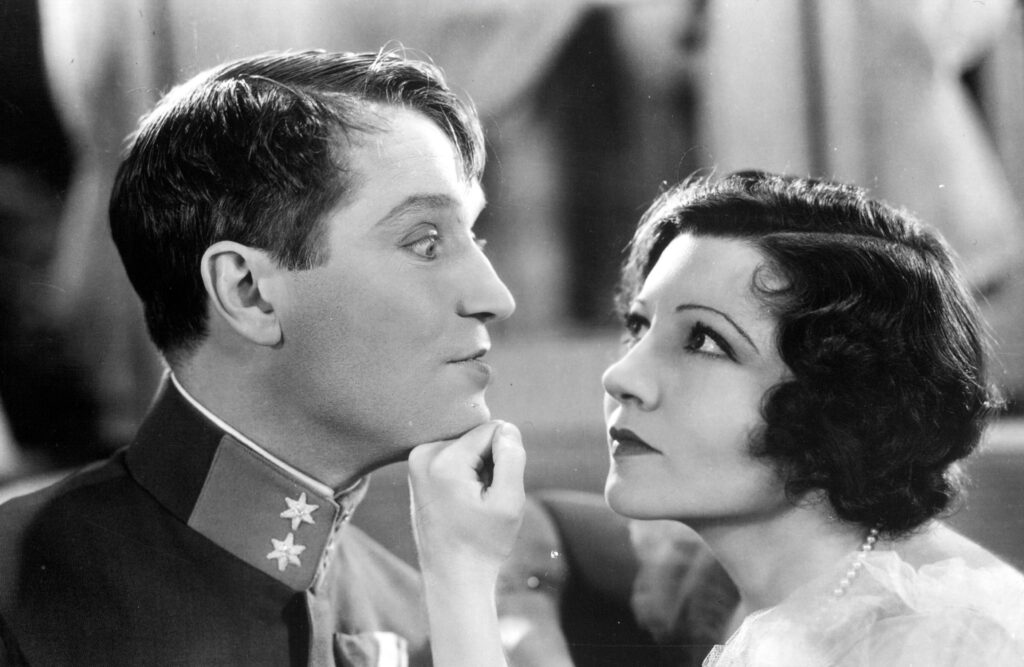
The Smiling Lieutenant (1931) is one of Ernst Lubitsch’s most important pre-code operetta films because it marks the beginning of his collaboration with Miriam Hopkins. While Hopkins is very good in The Smiling Lieutenant as the child-like Princess Anna, it is Claudette Colbert as the worldly violinist Franzi who steals the show. Of course Lubitsch intended this so that when our “hero” Niki (Maurice Chevalier) ends up with Anna and not Franzi the joke is on us.
Like many of Lubitsch’s films The Smiling Lieutenant is rife with class commentary; taking the usual position that it is better to be poor and full of passion than rich and lifeless. However when The Smiling Lieutenant is compared to the awfully similar Rouben Mamoulian film Love Me Tonight (1932) the former appears far less sophisticated than the latter. In large part this is due to the narrative focus of The Smiling Lieutenant which precludes the kind of boisterous, inclusive opening number of Love Me Tonight. Then there is also the matter of the story arc in The Smiling Lieutenant where the conclusion itself contradicts the political agenda of what had preceded it.
As is the case with almost all movie musicals there is always one number that is head and shoulders above the rest. With regards to The Smiling Lieutenant that number is the Colbert and Hopkins duet Jazz Up Your Lingerie. Lyrically the song is very clever and considerably funny. But it’s the queer subtext, or possibility thereof, that gives the song a unique kind of agency from today’s perspective. From the opening bars right after Colbert demands to see Hopkins’ underwear to the final images of the montage where all of Hopkins’ clothes have changed the number if full of possible queer innuendos.
On the whole The Smiling Lieutenant isn’t one of Lubitsch’s great pictures. It is funny and it is charming, yet it lacks the emotional truth of his real classics. It does have value from a historical perspective and to those invested in auteurist theory.I personally would recommend this film most highly to fans, such as myself, of Claudette Colbert.
